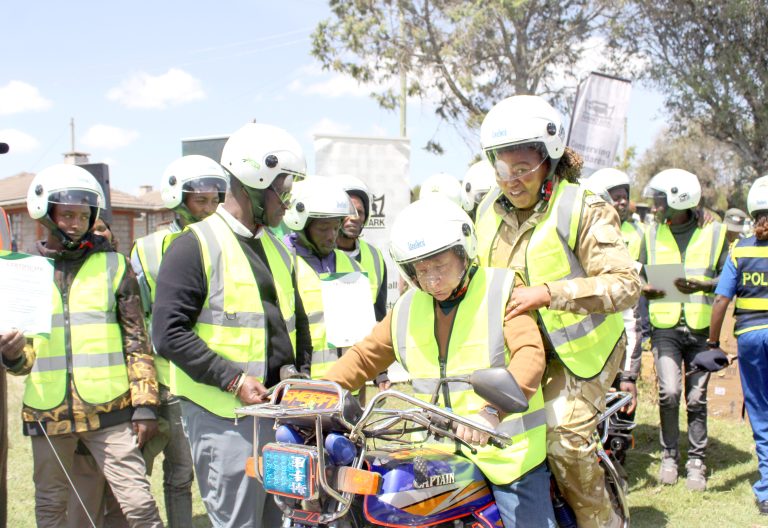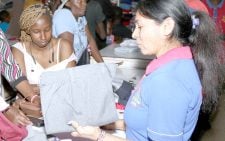Boda boda riders lead drive to combat climate change

Boda boda is the easiest, quickest and most convenient mode of transport for committing or aiding environmental crimes.
From transporting charcoal, poles, timber, live wild animals, bush meat and wildlife trophies, ‘bodas’ can be a weak link in conservation efforts.
Peter Gachaiya, a reformed poacher and charcoal burner in Eburu Forest, Nakuru county, narrated to the People Daily how their action led to serious environmental degradation.
“I was a notorious criminal in committing environmental crimes, and my efficiency was due to my motorbike, which helped me access the deepest part of the forest and also helped me to evade law enforcers,” Gachaiya said.
Gachaiya revealed that cedar post was the most sought-after forest commodity due to their high value.
Charcoal burning, timber harvesting and illegal farming were other activities that led to the clearing of thousands of acres in the indigenous forest, something he believes has led to unpredictable rainfall patterns and human-wildlife conflict.
He recalled an incident where he survived a road accident while transporting poles from the forest, with a scar on his face being a permanent reminder of the incident.
Apart from Eburu, Daniel Mburu, Kenya Forest Service (KFS) Ndaragwa forest manager, has decried the unsustainable illegal logging of cedar posts, the activity aided by boda boda operators.
“The Aberdare forest is vast, covering large areas where it is not possible to have KFS, KWS (Kenya Wildlife Services), among other agencies and even non-governmental organisations. This has led to massive logging of cedar posts,” Mburu decried.
Apart from illegal logging, charcoal burning and farming in forest ecosystems, national parks and reserves are recording many environmental crimes using motorcycles ridden by criminals.
New ways
Lucy Muita, a Kenya wildlife assistant director in Aberdare National Park, expressed her concern that the motorcycle operators are making it difficult for them and other agencies to conserve and protect the country’s heritage, the wildlife.
“Bush meat is transported from the parks and other ecosystems using motorbikes because they can access the remote and less accessible places,” she said, adding that the operators easily evade rangers and other law enforcement officers and ride speedily and carelessly endangering their lives and those of the officers.
To her, Aberdare and Mt Kenya ecosystems must be protected as it is the source of water to over 2 million people, hydro-electricity, and home to rare wildlife like Mountain Bongos and wild pigs among others.
To address and make the operators a strong link in Aberdare ecosystem protection, KWS, KFS, and Rhino Ark have launched a campaign aiming to convert them into conservation ambassadors.
Under the ‘Boda Boda Road Safety and Environmental Conservation Champions Programme’, KWS, Kenya Forest Service (KFS), National Transport and Safety Authority (NTSA) and the Rhino Ark have trained at least 133 road safety and environmental conservation champions in Eburu and Aberdare ecosystems.
The first beneficiaries included Peter Gachaiya, a reformed poacher in Eburu who, together with 48 other riders, we picked and trained on road safety and conservation two years ago.
Human-wildlife conflict has been reduced due to the erection of an electric fence by the Rhino Ark.
“After dropping our criminal ways, we have been trained on how to utilise forest resources. We have beehives where we harvest honey every three months, we get our animals fodder from the forest in a controlled manner, and also others are benefiting from eco-tourism activities,” Gachaiya added.
To expand the programme, Rhino Ark, KFS and KWS flagged off a team of 85 road safety and environment conservation champions from the community adjacent to the Aberdare and Mount Kenya ecosystem in the Shamata area.
The champions will also be involved in protecting and maintaining the 400-kilometre electric fence in the broader Aberdare ecosystem, each assigned a kilometre stretch.
The event was graced by the United Nations Special Envoy for Road Safety and former Formula One President John Todt.
Todt has donated 1,000 United Nations Standards helmets and other protective gear for riders, which will benefit riders residing near critical water towers across the country.
“Kenya is among the most beautiful countries, but has a tragic situation on the road due to high deaths and injuries,” he said.














